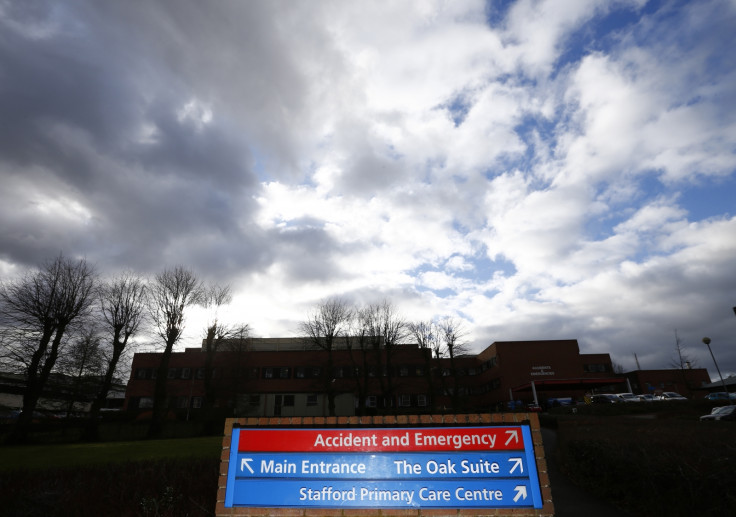Theresa May: No extra funding for NHS after Brexit
PM tells NHS boss health service should focus on getting rid of £22bn deficit.

Theresa May has announced the NHS will receive no extra funding in the wake of the Brexit vote.
Instead, the health service should focus on making key efficiencies to backfill the £22bn deficit in its finances, the PM told NHS England Chief Executive Simon Stevens last week.
May said the NHS should learn from previous cuts to the Home Office and Defence budgets, senior NHS figures told The Guardian.
Government sources have confirmed that Chancellor Philip Hammond's autumn statement, to be announced on 23 November, will provide no new funding for the health service despite strident warnings that hospitals are close to breaking point.
In the run-up to the June 23 EU referendum, the Vote Leave campaign said Britain sent £350m a week to the bloc, which could instead be diverted to NHS coffers.
However, these claims were quickly disproved within hours of Britain voting to leave the European Union.
Last week, NHS Providers, which represents 238 NHS trusts, claimed ministers were creating "a bit of a fantasy world".
It said they were sugarcoating NHS performance despite it being at its poorest in history for A&E waiting time targets, scheduled hospital operations and cancer treatments, leading some to warn it is starting to collapse.
Experts also told The Guardian the NHS may have to start rationing treatment, closing certain units and making staff redundancies if it does not receive crucial extra funding.
"If the government has firmly decided not to revisit NHS funding, this underlines that the health service faces four very difficult years. In particular, balancing the books in 2018 and 2019 when funding will flatline looks all but impossible with the current level of services," Nigel Edwards, chief executive of the Nuffield Trust health thinktank told The Guardian.

"If more money from tax or borrowing is ruled out, the only choices left may be even less attractive, including reducing access and services, closures and reductions in staff."
One NHS source confirmed Health Secretary Jeremy Hunt and Jim Mackey, the chief executive of the health service's financial regulator, NHS Improvement, were also in attendance at the September 8 meeting.
"No 10's message at the meeting was quite blunt and stark, that there will be no more money. Theresa May and Philip Hammond say that they presided over big efficiency programmes at the Home Office and MoD and didn't whinge about it. Their view is that the NHS is already doing very well, but that's head in the sand stuff," the source told The Guardian.
Chris Ham, chief executive of The King's Fund thinktank, criticised the policy and said it was likely to threaten standards of care.
"If these accounts are true, then it is clear that Downing Street does not yet fully understand the impact on patients of the huge pressures facing the NHS," he said.
"The view from the top of government appears to be that the NHS has been given the extra money it asked for and should deliver what is expected of it. But this misses the point that demand for services is rising rapidly and the NHS is managing with the lowest funding increases in its history."
© Copyright IBTimes 2024. All rights reserved.






